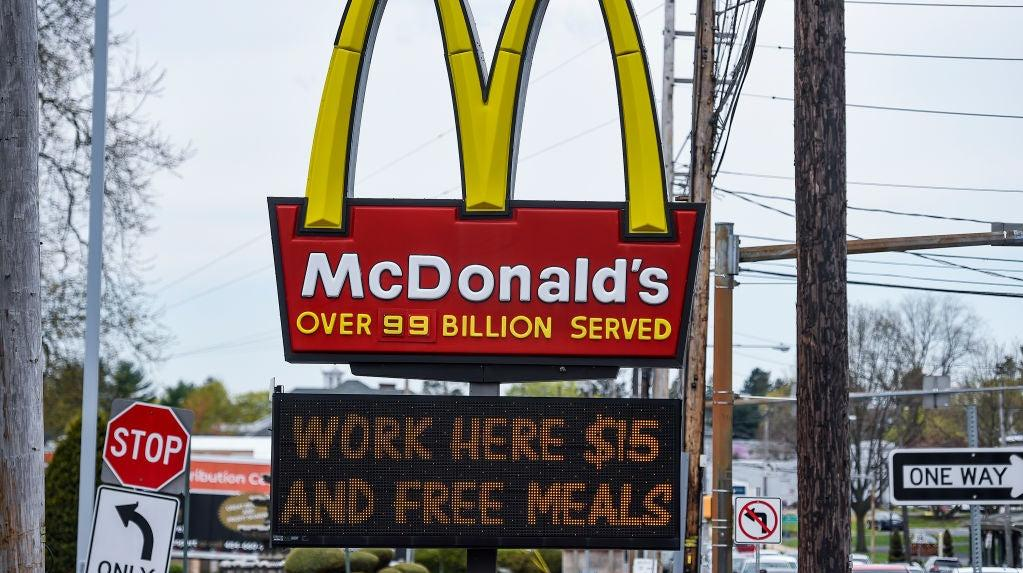Someone Finally Asked Restaurant Workers Why They're Not Returning
Did you know there's a restaurant labor shortage? Restaurant owners have been complaining about it ever since states started ramping up capacity limits and vaccinated customers started filling tables again. But despite plenty of opportunities—The Washington Post reports that there are 1.7 million more unfilled jobs than there were before the pandemic—restaurant workers aren't coming back. Those lazy workers! the owners complain. They'd rather live off their unemployment checks than make an honest living for minimum wage! What is this country coming to?
The Post, though, had the novel idea of actually asking the workers why they weren't going back. (Imagine that!) There were a range of answers, but the case of Jim Conway, a longtime server at an Olive Garden outside Pittsburgh who decided to retire during the pandemic, best sums them up:
Being paid the rough equivalent of a chocolate bar an hour from the chain was little incentive for him to stick it out longer in the industry after so many years, especially with tips no longer a reliable source of income and lingering health concerns about covid-19.
"The main issue for me was safety," Conway said. "There are lots of people who don't want to participate in the old ways."
"The old ways" include not only low base pay and a dependence on tips, but also unsafe working conditions, sexual harassment, volatile coworkers, drug and alcohol abuse, and high turnover. The pandemic was just the final straw.
All described the pandemic as an awakening — realizing that long-held concerns about the industry were valid, and compounded by the new health concerns. And forced to stop working or look for other jobs early on in the pandemic, many realized they had other options.
Allan Creasy, a popular bartender in Memphis, for example, has started doing fundraising and social media for a local political action committee, work that pays as much as bartending did but which feels more meaningful, with the extra bonus of steadier pay and fewer assholes.
Jazz Salm, a former server from Florida, found that restaurant work didn't provide much security, even before the pandemic. If your workplace had to shut down for any reason, like a fire or a warning from the health department, you were out of work, and the pandemic, with its ever-changing restrictions, just made things worse. Now Salm is working as a medical caregiver and is thinking about switching over permanently.
Other workers told the Post that the pandemic had shown them that their wages were unsustainably low, and that the current labor shortage has given them the confidence to demand better pay and benefits like health insurance. (See also the story of this ice cream parlor in Pittsburgh that had lines of applicants out the door when it raised its base pay to $15 an hour.)
Will this be a lesson for restaurant owners—and also people who are turning this into a political issue? We shall see. But the Post's piece is definitely worth a read.
